Panoramic Photo Above:
Cubs-Orioles, Scottsdale, AZ, March 10, 1956

Baseball History Comes Alive Now Ranked As a Top Five Website by Feedspot Among All Baseball History Websites and Blogs!
(Check out Feedspot's list of the Top 35 Baseball History websites and blogs)
Guest Submissions From Our Readers Always Welcome! Click for details
Visit the Baseball History Comes Alive Home Page
Subscribe to Baseball History Comes Alive
Free Bonus for Subscribing:
Gary’s Handy Dandy World Series Reference Guide
Shoeless Joe Jackson Photo Gallery
Breaking News!
Say It’s So!
Pete Rose and Shoeless Joe Jackson Are Back In!
“There are murderers who serve a sentence and then get out…Not me, I got life.” –Black Sox Buck Weaver, speaking of his lifetime ban from baseball.
Hallelujah!
I’m not completely sure what compelled the geniuses who run Major League Baseball to unexpectedly reinstate Pete Rose and Shoeless Joe Jackson at this particular moment. Did the sheer hypocrisy of banning the all-time hits leader (Rose) and one of the greatest hitters of all time (Shoeless Joe) for gambling infractions, while at the same time endorsing gambling on baseball in every way imaginable, including in ballparks, just become too much even for them to bear? Perhaps we’ll never know.
(In the featured photo, we see a beautiful colorization of Shoeless Joe Jackson from his time in Cleveland by our resident baseball artist, Don Stokes.)
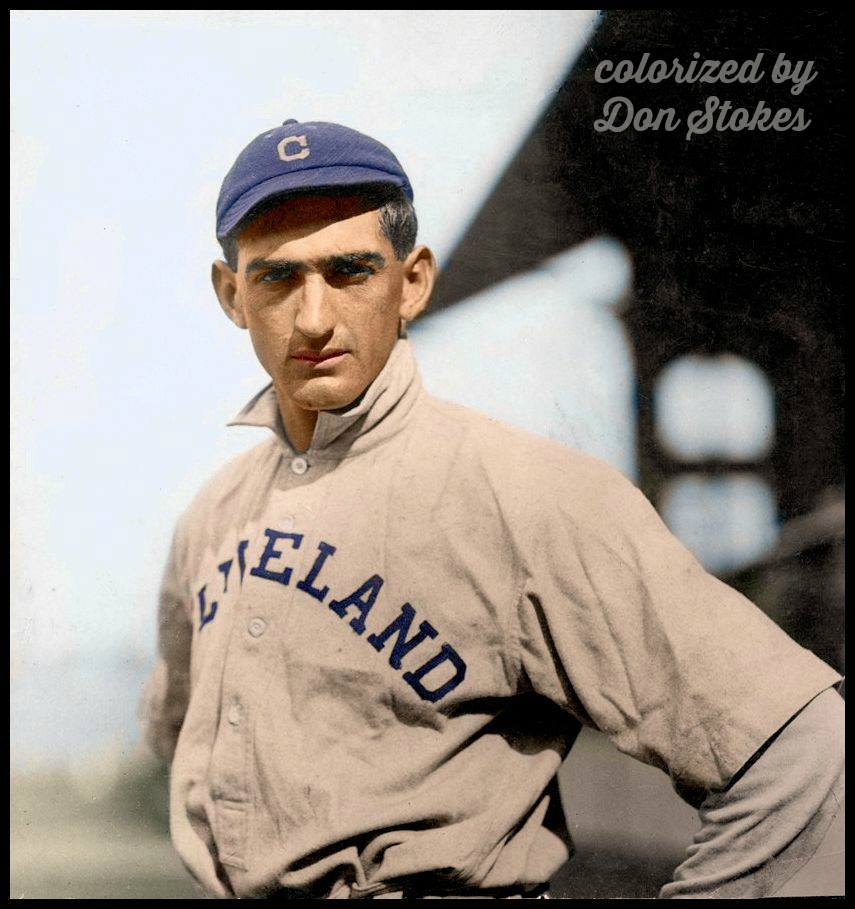
I certainly don’t expect everyone to agree with me, but in my humble opinion – and for whatever reason – the baseball brass finally stumbled into the right decision. Now, if we can just get them to reconsider the case of Buck Weaver, we’ll have a perfect trifecta! (see above quote). [Ed. Note: Just found out Buck is reinstated too!…great news!]
According to the New York Post, with both Pete Rose and Shoeless Joe Jackson being reinstated into baseball’s good graces, this could make them eligible for the Hall of Fame as soon as 2028. Commissioner Rob Manfred made the following statement regarding Rose, which I assume also applies to Joe Jackson:
“It is hard to conceive of a penalty that has more deterrent effect than one that lasts a lifetime with no reprieve. Therefore, I have concluded that permanent ineligibility ends upon the passing of the disciplined individual, and Mr. Rose will be removed from the permanently ineligible list.” (1)
Regardless of how you feel about the guilt or innocence of the two individuals, today’s announcement will be viewed as a pleasant surprise to their many fans, especially regarding the case of Joe Jackson, one of the most emotionally charged topics in all of baseball history. I’ll save Pete Rose’s case for another day, and today I’ll just concentrate on Jackson.
I think Joe and his legacy have suffered enough. His reinstatement comes 106 years after his lifetime banishment from baseball as part of the 1919 Black Sox scandal, a guilty association that he always denied. It also comes 74 years after his death in 1951. It’s hard to find fault with his performance in the field during the 1919 World Series: He hit a Series-leading .375 with six RBIs. He hit the only home run of the Series, and played errorless ball, handling 16 chances flawlessly, and even threw out a runner at the plate.
In my book, Reflections of the 1919 Black Sox Scandal, Time to Take Another Look, I wrote three separate essays about Jackson’s involvement in the Black Sox scandal. The first one was titled “Did Joe Jackson Confess?” and discusses the different ways in which his “confession” could be interpreted. The second was “Joe’s Play in the Field and At-bat,” detailing his outstanding performance in all aspects of the Series, and the third, “Joe and the Tainted $5,000” presents a detailed discussion of the money he found under his pillow and his explanation of his innocence.
It was never my intention to settle Joe’s level of guilt or innocence, but only to present the facts as objectively and unemotionally as I could, and let the readers make up their own minds. However, agreeing with Gene Carney in his book, Burying the Black Sox, I’ve always thought there were differing levels of guilt in the scandal, and Landis’s one-size-fits-all verdict was unjust. I think perhaps a one-year suspension followed by reinstatement – if any punishment was deemed necessary – for both Jackson and Weaver would have been more equitable.
And so, just to refresh your memory about Joe Jackson, here’s some information about his great career:
In his 13-year career (1908-1920), cut short by the lifetime ban rendered by Judge Landis, Joe played for the Philadelphia Athletics (1908-1909), Cleveland Naps (1910-1915), and the White Sox (1915-1920). In addition to his .356 batting average, he compiled 1772 hits, 873 runs, 307 doubles, 168 triples, 792 RBIs, 202 stolen bases, a .423 on-base percentage, and a .517 slugging average. His 170 OPS+ places him among the most elite hitters in baseball history. In 14 post-season games, Joe hit .345 with one home run and eight RBIs.
His rookie year of 1911 is “off the charts” for a rookie, and his three-season totals from 1911-1913 are arguably one of the best three-year spans in baseball history. Let’s take a look at just what Jackson accomplished:
1911
Joe Jackson’s stats from 1911 would be amazing even if he weren’t a rookie. He compiled 233 hits, with 126 runs, 45 doubles, 19 triples, 83 RBIs, and 41 stolen bases. His phenomenal .408 batting average set a record for rookies that still stands and we can safely say will never be broken. Incredibly, it was only good enough for second in the league behind Ty Cobb’s .420. It’s still the sixth-highest single-season total since 1901. His .468 on-base percentage led the league, and he posted a .590 slugging average. Truly a remarkable season.
1912
It’s hard to imagine how one could improve on a season like that, but he came close in 1912. That year Jackson’s batting average “slumped” to .395, but he led the American League in hits (226), triples (26), and total bases (331). He also collected 44 doubles, 90 RBIs, 35 stolen bases, a .458 on-base percentage, and a .579 slugging percentage.
1913
Jackson’s phenomenal run was not finished. The next year, 1913, may have been the best of the three. His 197 hits, 39 doubles, and .551 slugging percentage all led the American League. He hit .373 for the year, with 71 RBIs, 17 triples, 26 stolen bases, 291 total bases, and a .460 on-base percentage. Jackson struck out only 26 times in 623 at-bats.
Totals from the Three-year Span, 1911-’13
Over this three-year span, from 1911 to 1913, Joe Jackson’s batting average was .392, with an average per year of 218 hits, 118 runs scored, 42 doubles, 21 triples, 81 RBI, 34 stolen bases, and a phenomenal 192 OPS+. It would be hard to come up with a better three-year span.
In 1999, he ranked number 35 on The Sporting News list of the 100 Greatest Baseball Players and was a finalist for the Major League Baseball All-Century Team. The fans voted him as the 12th-best outfielder of all time. He also currently ranks 33rd on the all-time list for non-pitchers according to the win shares formula developed by Bill James.
So today, all I can say is:
Yes…It is so! Welcome back, Joe…better late than never. Let’s hope that the doors to the Hall of Fame – where you rightfully belong – will soon be opened to you!
Gary Livacari
We’d love to hear what you think about this or any other related baseball history topic…please leave comments below.
Photo Credits: Featured photo colorized by Don Stokes. All others from Google search
Quote (1) from New York Post, May 13, 2025
Subscribe to Baseball History Comes Alive. FREE BONUS for subscribing: Gary’s Handy Dandy World Series Reference Guide.
Visit the Baseball History Comes Alive Home Page
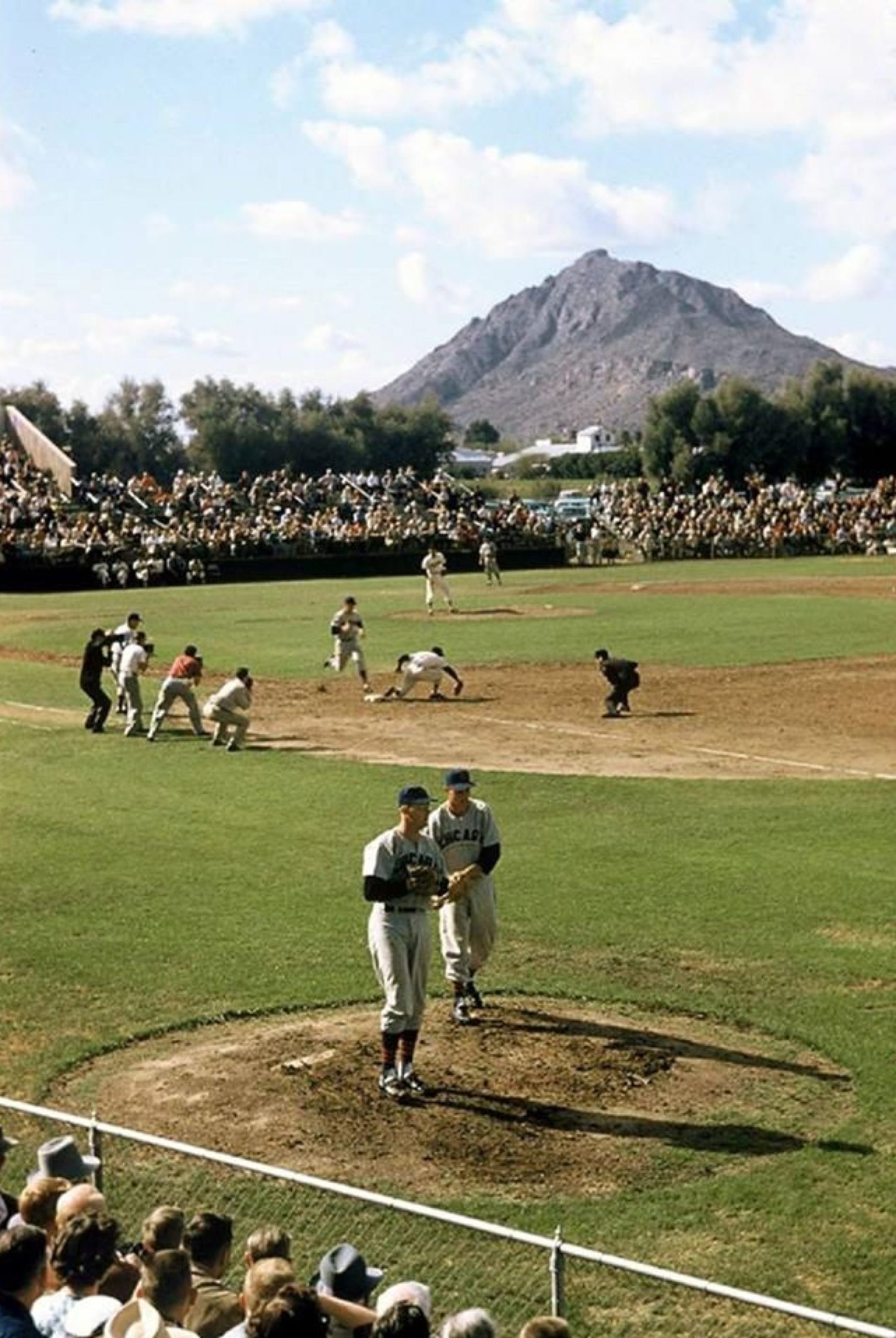
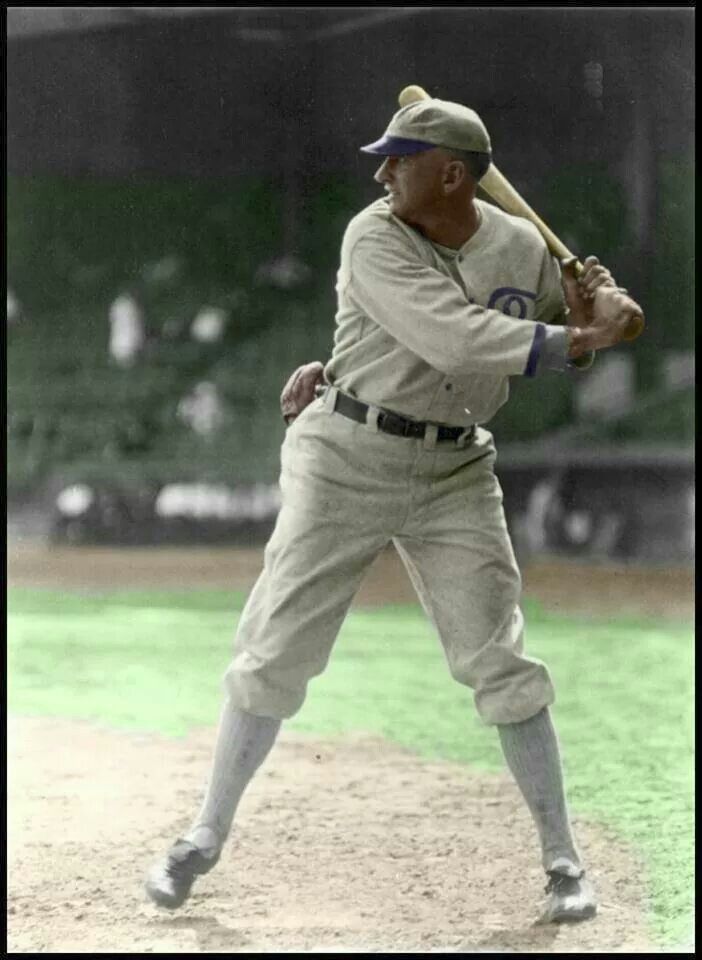
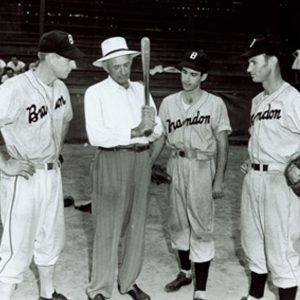
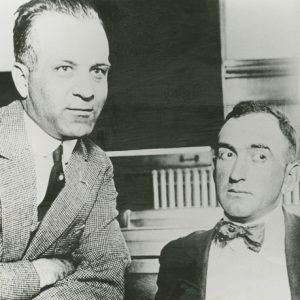
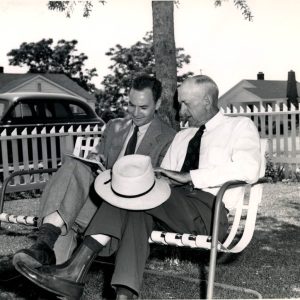
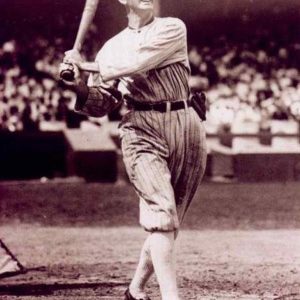
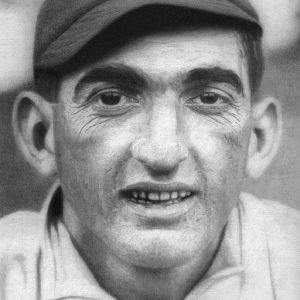
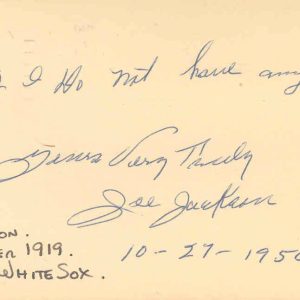
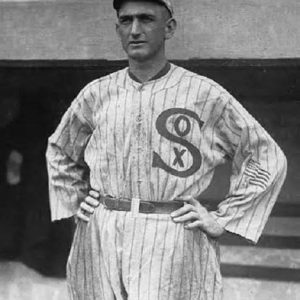
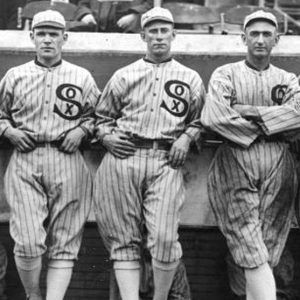
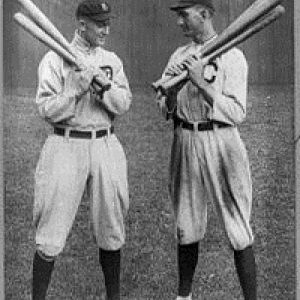
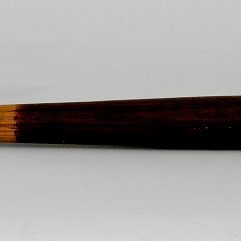


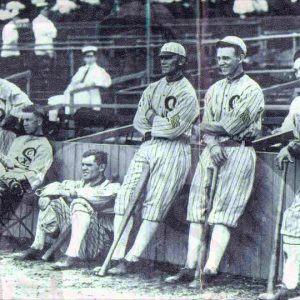
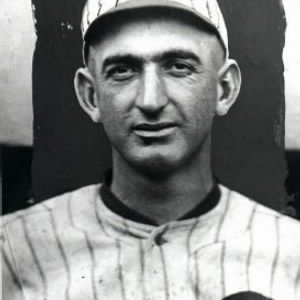
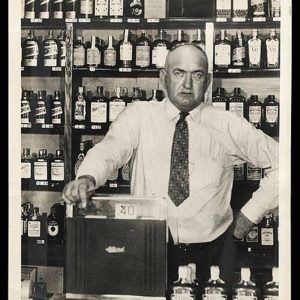
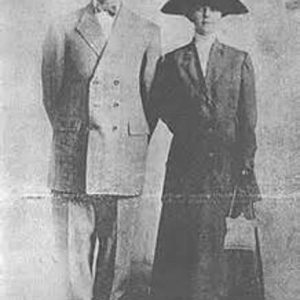
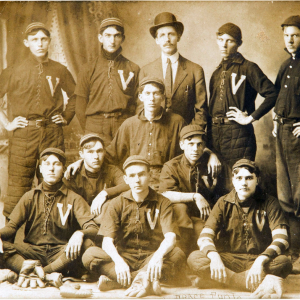
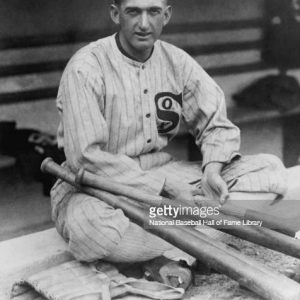
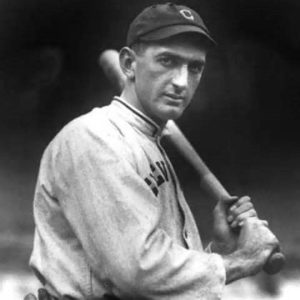
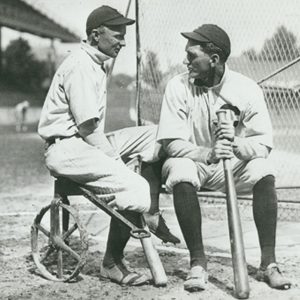
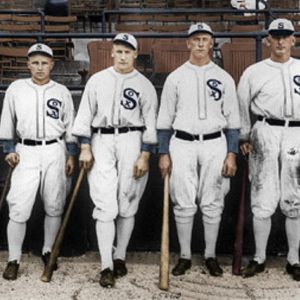
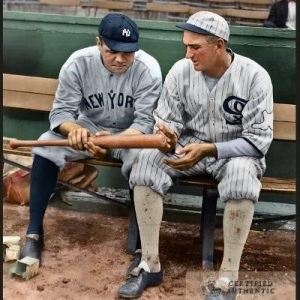

It’s about time! It looks like a total of 17 players were removed from the permanently ineligible list, including all 8 of the White Sox players given lifetime bans for their involvement in the 1919 World Series scandal. The others, beside Rose and the 8 Sox players, are: Joe Gedeon, Gene Paulette, Benny Kauff, Lee Magee, Phil Douglas, Cozy Dolan, Jimmy O’Connell and William Cox.
Rose, Jackson and the others can now be considered by the Classic Baseball Era Committee when it meets in December, 2027. Eight names will be placed on the ballot by the Historical Overview Committee, and I’m sure Rose and Jackson will be two of those named. If elected to the Hall, which would take 12 of the 16 votes cast, induction will be in 2028.
I guess the saying “better late than never” applies, but it’s shameful that something couldn’t have been done for Pete Rose prior to his passing. And I agree completely with your assessment that the “one size fits all” penalty imposed by Judge Landis against the Sox players was unjust. Still, I was very pleased to hear this news today. Let’s hope the voting Committee in 2027 doesn’t kick the can of punitive harshness even further down the road of delay and denial.
Thanks Ron…great insights!
It’s way past time for both in my opinion. Now for the HOF….
Thanks Joe…agree!
Couldn’t agree more. Nice write-up, Gary. Not to add politics, but didn’t President Trump suggest this recently?
Yeah, I believe he did…thanks Jay…see you soon!
Ludicrous. All of a sudden it’s ok to bet on games as a player or player/manager, despite seeing posted notices of its prohibition in every clubhouse and knowing exactly what the penalty is? It’s ok to take money from gamblers and then claim that you double crossed them and played your best?
Look, the whole point of this is to tie in to the all-but-mandatory sports gambling that has infected the country. How would it look when, in trying to get people to gamble on ball games, two of the game’s illustrious hitters were banished…for betting or at the very least consorting with gamblers?
I don’t expect anything less in a country where the rule of law has become a sad joke but let’s not pretend that we righted a historical wrong; we’ve simply compromised yet more standards in pursuit of higher profit.